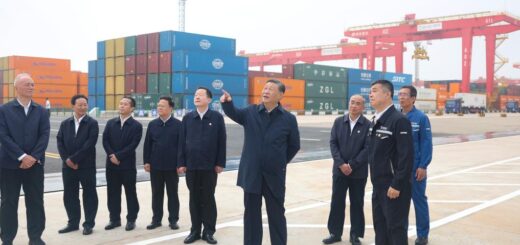Wastewater a threat to the provision of clean and safe drinking water, laments NWASCO Director Kelvin Chitumbo
Notice: Undefined index: catFilterList in /home/zambi/public_html/wp-content/plugins/wp-likes/api.php on line 243
By Rose Enala Tembo-Public Relations & Communications Manager
LUSAKA – (20th March, 2017). The National Water Supply and Sanitation Council (NWASCO) says wastewater remains a threat to public health and the provision of clean and safe drinking water without the enforcement of standards for construction of sanitation facilities and wastewater re-use.
Speaking ahead of World Water Day which will be commemorated on 22nd March 2017 under the theme ‘Water and Wastewater’ NWASCO Director Kelvin Chitumbo observes that it is for this reason that NWASCO is developing a strategy on the regulation of on-site sanitation and faecal sludge management. Regulation of these services will help promote good public health and ensure cleaner and safe environments.
Happy TuesdayThe Ministry of Water Development Sanitation and Environmental Protection (MWDSEP) newly appointed Permanent Secretary Mr. Mabvuto Sakala, today 10th September 2019, visited National Water Supply and Sanitation Council (NWASCO) on a familiarisation tour. During the tour, the NWASCO Director Mr. Kelvin Chitumbo gave an overview of the regulation of the Water and Sanitation Services (WSS) highlighting the reform process, regulatory tools, notable achievements and challenges. From the Director’s presentation, the PS expressed concern on the increasing levels of Non-Revenue Water which is negatively impacting the sector. He urged NWASCO to come up with quick wins for the challenges in the Sector in order to stir development.Here are some picture highlights from the visit
Posted by Nwasco – National Water Supply and Sanitation Council on Tuesday, September 10, 2019
On-site sanitation systems such as pit latrines and septic tanks are now widely in use in Zambia especially in the peri-urban and new development areas. This is due to the fact that sanitation facilities are dilapidated and inadequate to meet the current demand while improper use of the facilities have exacerbated the situation. However, most pit latrines and septic tanks are poorly constructed in most cases and maintenance and management of these facilities is very poor and largely contribute to the deterioration of groundwater quality through discharge of untreated wastewater.
Mr Chitumbo adds that investing in on-site sanitation and the associated faecal sludge management (i.e. treatment infrastructure development for faecal sludge) as well as enforcing of desludging services is vital for Zambia.
“Investment is key to address this challenge and we have seen good will from government and cooperating partners to fund both water and sanitation as evidenced from a number of projects such as the Three hundred million US Dollars for the Lusaka Water and Sewerage specifically for sanitation while the Two hundred Million US Dollars for Nkana Water and Sewerage Company, One Hundred and Fifty Six Million Euros for Mulonga Water and Sewerage Company and One Hundred and four Million US Dollars for Kafubu Water and Sewerage Company include sanitation aspects.
Efficient sewerage systems including sewage treatment plants are vital for any country so as to ensure that wastewater and sludge are treated before being discharged into the environment.
Background
Wastewater is characterised by a number of substances which are usually added to it during the process of use. These substances must be removed from the water before returning it back to the environment. The pathogenic and chemical nature of wastewater demands that it should be adequately treated and disposed so that it does not become an environmental and public health hazard.
More than 70% of industrial waste is dumped untreated into water sources where they pollute the usable water supply. Some of the biggest generators of industrial waste include among others mining, pulp mills, tanneries, sugar refineries and pharmaceutical companies.
Rose Enala Tembo-Public Relations & Communications Manager nwasco email logo
Tel: +260 211 226941/2, +260 977790138
Fax: +260 211 226904
Plot 164 Mulombwa Close, Fairview
P.O. Box 34358
Lusaka, Zambia
Ensuring better services and fair value
www.rainbownewszambia.com





















